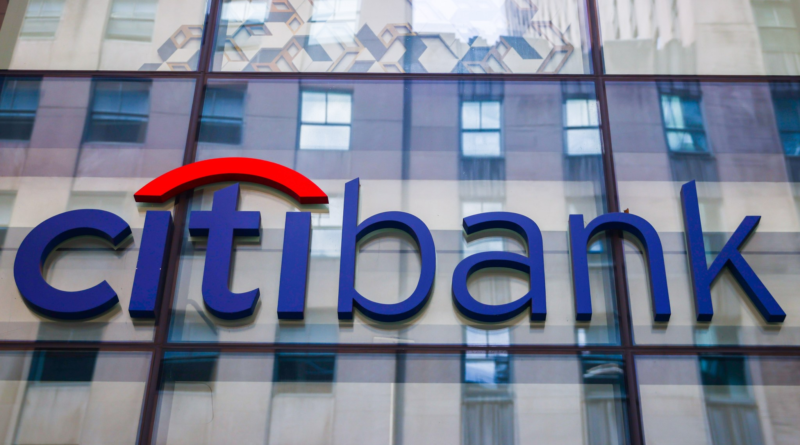Citi moves vital infrastructure to Google Cloud as part of broader AI push
Citigroup today announced a multiyear strategic partnership that will see the bank move parts of its vast financial infrastructure to a platform hosted by Alphabet subsidiary Google Cloud. New York–based Citi, the fourth largest bank in America by assets, currently relies heavily on hardware. It expects the integration to a virtual environment will make it easier to customize its financial pipes and respond to consumers’ ever-changing demands.
As part of the partnership, Balaji Kumar, Citi’s head of global technology infrastructure, told Fortune, the bank will also be using Google Cloud’s Vertex AI platform to build a number of financial tools for customers using artificial intelligence. Though details about which applications might launch first weren’t disclosed, Kumar says “quite a few” pilots are already in the works.
“It’s a massive opportunity for us to engage in technology modernization,” says Kumar. The infrastucture upgrade is part of a larger effort at Citi to better capitalize on the bank’s financial pipes, which power much of the global economy, and comprise half of the bank’s revenue.
Though the partnership is still in its early days, Rohit Bhat, the managing director of Google Cloud’s financial services division, says that Google Cloud’s engineering, product, and sales teams have been working with Citi’s technology and business enablement team for months and much of the technology they’ve codeveloped is quite mature.
Top among the Google Cloud upgrades at Citi is a high-performance-computing (HPC) capability that will run millions of risk calculations a day for Citi’s Markets business. The software is expected to reduce latency—or delays—by preemptively checking transactions to ensure they have enough compute power and storage to execute.
Through the partnership Citi also has access to Vertex AI, the enterprise version of Google’s proprietary Gemini AI, and other open source large language models (LLMs), including Gemma, Meta, and Mistral. In the future, the bank anticipates using the AI tool to complete other pilots currently being developed, including for customer service and call centers, document digitization, and customized marketing tools.
Implementing cloud and AI tools give rise to new security considerations, ranging from where the data comes from to who can access it. To address those concerns, Kumar says, “every use case is governed and monitored and approved” before it is rolled out for public use. That includes careful analysis of the kind of data used, where is it is hosted, and whether the data is being stored for future use or being actively used.
“We’re starting with the modernization platform really focused around reducing risk,” says Google’s Bhat. “That is the foundation layer of then how we go into some of the more innovative things we’re building: new products, services, and enhancing customer experience across the firm.”
Strategic placement
The partnership is part of Citi CEO Jane Fraser’s larger effort to highlight the role its financial infrastructure plays in the economy. Last year, Fraser reportedly reorganized the firm’s business lines to emphasize the role the bank’s treasury and custody services play in global finance.
“The end state will be a simplified operating model,” says Citi’s Kumar. “Which is what our CEO and our executives have talked about quite a lot: the ability for us to meet the customers where they are, for us to be able to launch products at scale.”
This partnership is also part of Citi’s broader AI strategy. A widely covered Citi report in June predicted that 56% of banking jobs were ripe to be displaced by AI. Four days after the report was published the bank announced a strategic investment in commercial lending AI startup Numerated to improve commercial lending analysis.
Citi’s stock increased 1% today. So far this year, the company’s stock has increased 15% compared to a 26% increase at other U.S. banks tracked over the same period by the S&P U.S. Banks Index.
Citi’s partnership with Google places it in a strategically different position than some of its competitors. The same month Citi invested in Numerated, the Wall Street Journal reported that Goldman Sachs had deployed its own generative AI tool; and in August Fortune exclusively reported that 14,000 BNY employees were using Eliza, a new AI named after Alexander Hamilton’s wife.
This isn’t the first time an Alphabet subsidiary has partnered with Citi. In November 2020 Citi announced it would work with Google to offer a checking account using Google Plex, a digital checking service that was canceled the following year.
For Google Cloud, the Citi deal comes as the division expands efforts to help financial institutions use artificial intelligence. Perhaps most notably, in April, Google Cloud partnered with Discover Financial Services, the parent company that runs the Discover credit card and Discover Bank, to help integrate its AI into customer services.
“We believe that there is a material step function change in the ability for firms to understand the information that lives between their four walls,” says Google’s Bhat, “improve the customer experience that their clients are experiencing, and enable the developers to build net new experiences for their clients. That step function change is a combination of generative AI and machine learning.”




